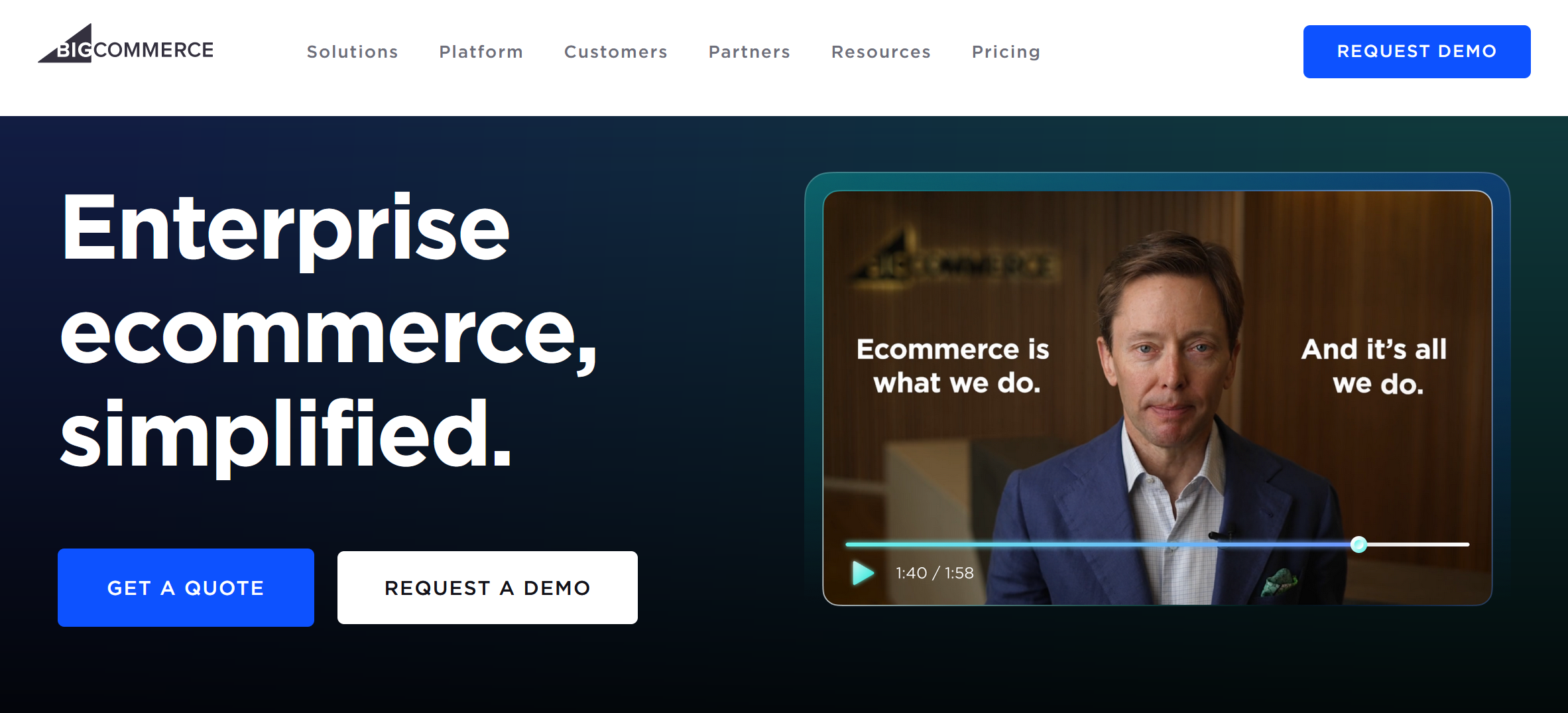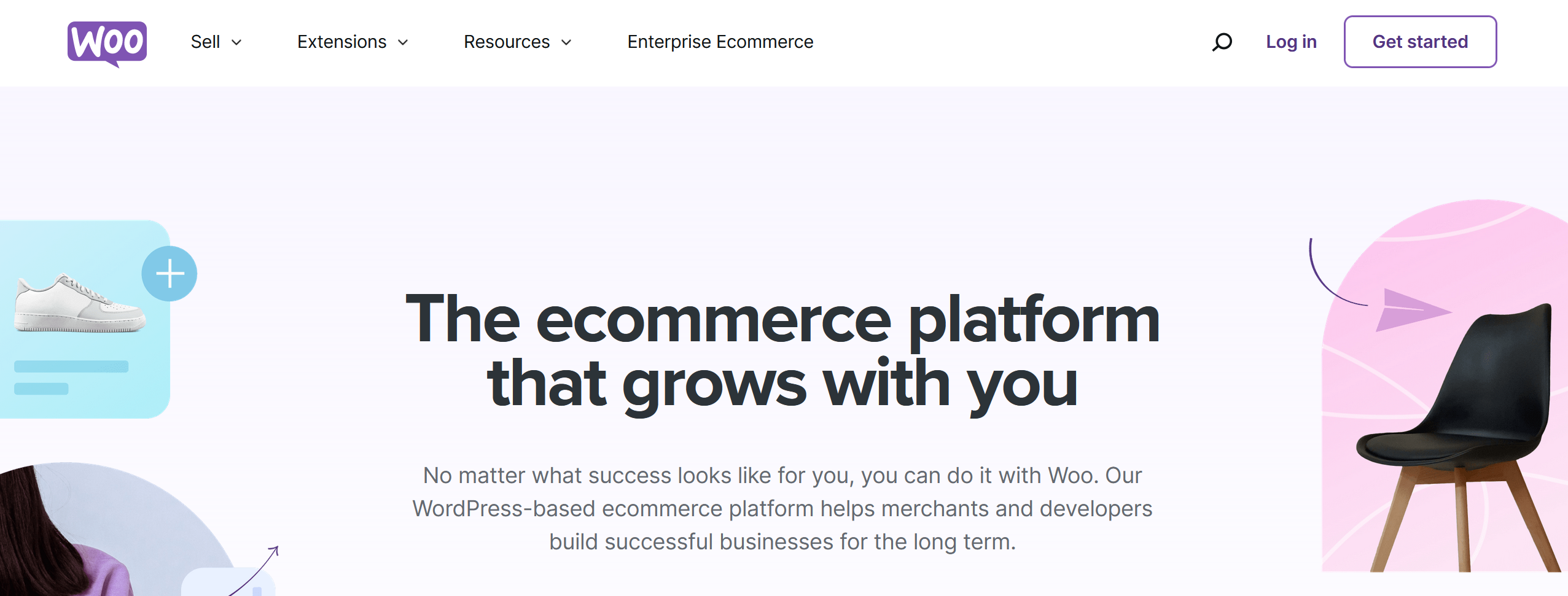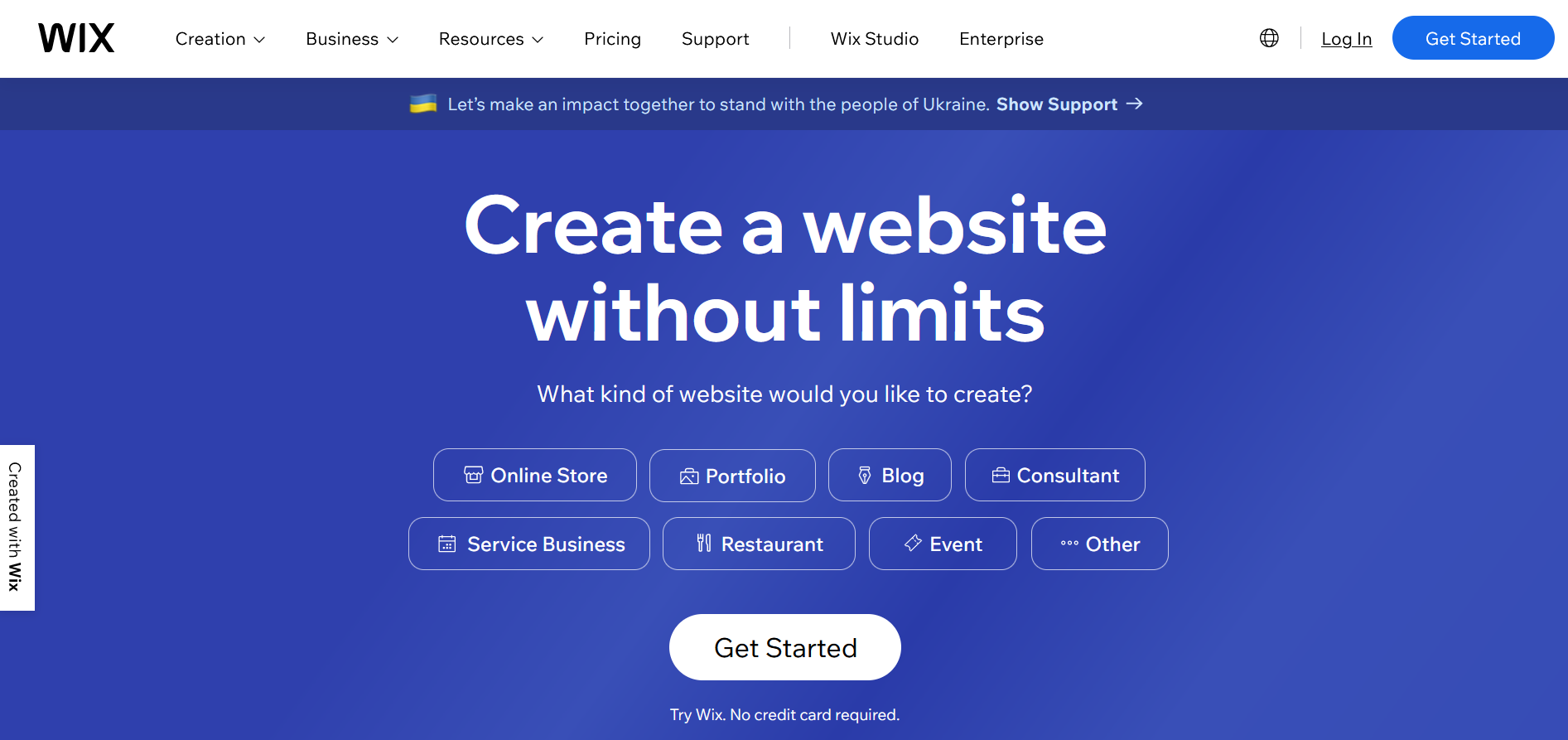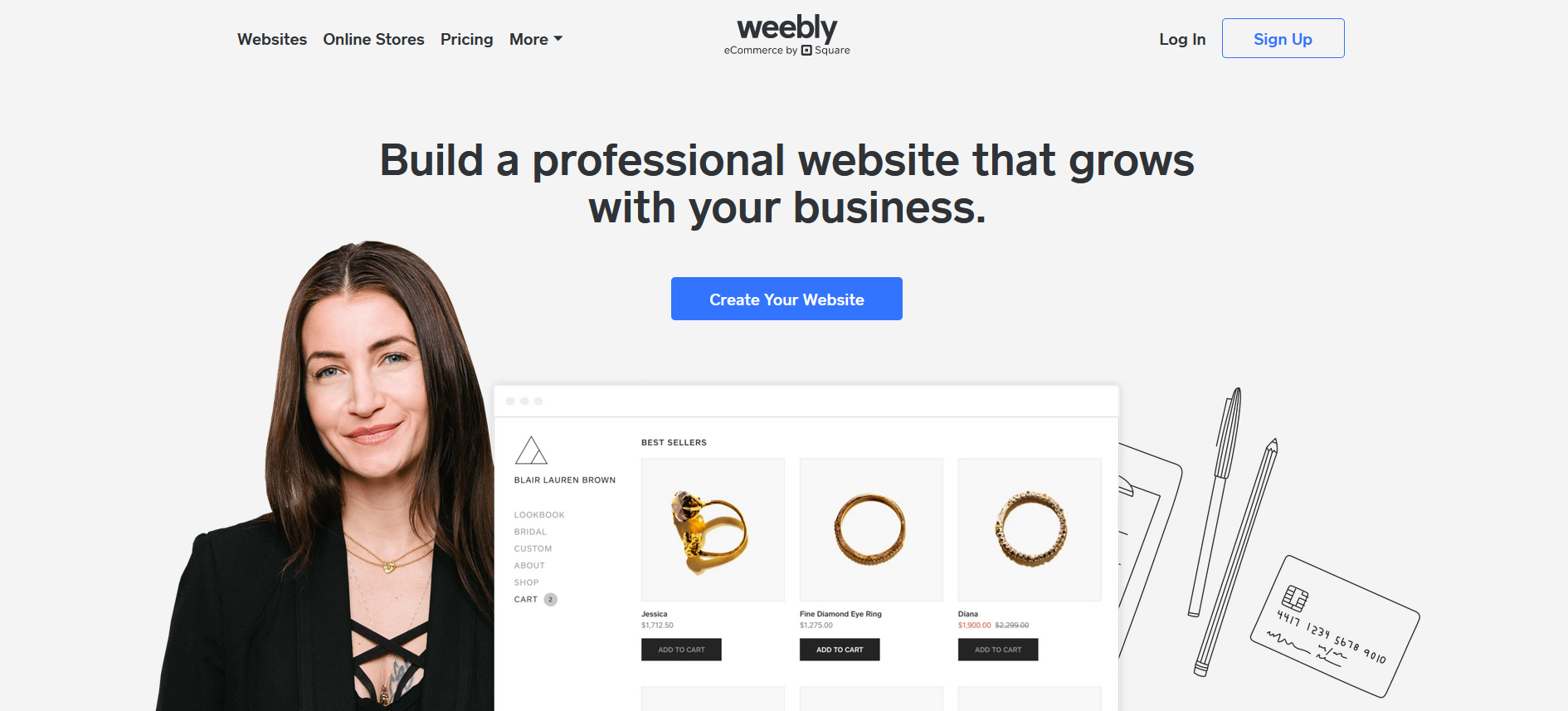Shopify is rightfully considered one of the most famous and popular platforms for creating e-commerce websites. Today, it is used by more than 2 million sellers from 170+ countries. This platform, tailored for small and medium-sized businesses, offers entrepreneurs the turnkey tools they need. Here they get a drag-and-drop website builder, over 100 ready-made design templates for online stores, unlimited cloud space, analytics, marketing and SEO tools, as well as 6,000+ integrations with third-party systems. However, Shopify also has certain disadvantages. These include insufficient opportunities for site customization, a limited number of free themes, and the high cost of tariff plans. Additionally, if a merchant uses a third-party payment service other than Shopify Payments, the platform will still charge them a fee for each transaction.
In our article, you will find out who Shopify’s competitors are and what opportunities they offer entrepreneurs. We will talk about the main features of the 5 best platforms for e-commerce, in addition to Shopify, and the cost of their services.
BigCommerce

Let's start our selection of the best Shopify alternatives with a very worthy, although not the most famous, e-commerce platform BigCommerce. It is ideal for aspiring entrepreneurs and small business owners. The system is equipped with good functionality and easily integrates with third-party payment systems. Today, it is used by more than 60,000 merchants from 150+ countries.
Key features:
- Users can add an unlimited number of products or services to the catalog and create several online stores.
- There are 12 free and 205 paid store design templates available in the BigCommerce library. Each of them is adaptive and contains several options. Paid templates range from $150 to $400.
- The catalog supports more than 600 product variations, including color, size and other parameters. Each variant is assigned a unique stock-keeping unit (SKU) to streamline inventory.
- The categorization of products in the catalog is performed only manually. The bulk editing feature accelerates this process.
- Ability to add custom fields when filling out product characteristics. The service allows you to upload up to 20 files (“weighing” up to 524 MB each) for one position.
- The store owner can automatically send customers up to 3 emails reminding them about items forgotten in their cart. The platform has a built-in designer for such email campaigns.
- BigCommerce supports multi-currency payments by automatically detecting the buyer's country of origin and translating product prices into the appropriate currency.
The system does not apply to free Shopify alternatives. There are four paid tariff plans available here: Standard (from $29 per month, subject to annual payment), Plus (from $79 per month, subject to annual payment), Pro (from $299 per month, subject to annual payment), and Enterprise (price is negotiable individually). The service does not charge sellers a commission for transactions and also allows them to independently calculate the cost of delivery of their goods.
WooCommerce

The next system on our list, Shopify alternatives, is not a separate marketplace. WooCommerce is one of the most famous and popular e-commerce plugins for websites on the WordPress platform. Nevertheless, it deservedly ranks among the top online store designers due to a number of its advantages.
Key features:
- The plugin easily connects to any website created on WordPress, turning it into a full-fledged modern online store. However, there is a caveat: it will be limited to the WordPress ecosystem and will only be able to integrate with certain external services and solutions.
- WooCommerce has an extensive library with hundreds of website design templates, including many free options.
- The powerful Gutenberg block editor allows you to develop an online store design from scratch with profound customization of elements. In addition, short code support is available here.
- Users can add products to the catalog with a few clicks. The Product CSV Import Suite extension will help automate their bulk loading.
- Free integration with third-party sales channels (e.g., eBay, Amazon) and other e-commerce platforms.
- The service supports many languages and currencies, making it suitable for creating global online stores.
- A library of paid and free widgets complements the main functionality of the site, adding many new features.
Considered one of the best competitors to Shopify, the basic features and tools of this plugin are provided for free. Only original design templates, extensions and additional functions (for example, automation of tax calculations) are paid. WooCommerce offers its own payment processing with a fee of 2.9% plus $0.30 per transaction.
Shift4Shop

Since 2001, the online store builder Shift4Shop has been known as 3dcart. In 2020, a rebranding was carried out, as a result of which it received its modern name. Today, it is deservedly considered one of the best free alternatives to Shopify, thanks to its accessibility, versatility and wide range of tools.
Key features:
- The platform does not charge a subscription fee for those users who conduct transactions worth $500 or more per month through its payment processing system, Shift4. They use a full free End-to-End plan, paying only a commission of 2.9% plus $0.3 for each payment. This plan is only available to US merchants.
- The service also supports third-party payment services - more than 100 in total. Sellers can connect such popular systems as PayPal, Stripe, Square, Authorize.net, and so on to their store.
- Shift4Shop has a built-in CRM system with a set of useful tools for managing interactions with customers and monitoring their performance.
- The service's library includes over 100 free thematic design templates for online stores. All of them are adapted for mobile devices.
- Shift4Shop provides access to an app store and a solid number of integrations with third-party systems, including Facebook, Google, AWeber, MailChimp and others.
- The built-in visual and HTML designer allows you to flexibly configure and customize the selected theme by changing its color palette and adding new blocks.
- Each plan offers unlimited products, free hosting with unlimited bandwidth, and free store migration. Domain registration services and API access are also available.
Shift4Shop's line of paid plans, one of the best Shopify competitors, consists of 3 plans. Basic ($29 per month) gives you a full range of standard tools and allows you to sell up to $100,000 worth of products per year. Plus ($79 per month) provides Q&A and product comparisons, audience segmentation, and has a sales limit of $250,000 per year. Pro ($229 per month) contains the most features and has a sales limit of $1 million per year.
Wix

The Wix platform is one of the most preferred alternatives to Shopify, since it is considered one of the best designers for aspiring entrepreneurs and marketers. Among its advantages are, as most often cited, a simple, functional interface and an impressive library of design templates.
Key features:
- The exclusive Artificial Design Intelligence (ADI) editor helps automate the online store development process. The users only need to answer a few questions, and the rest of the work is done for them by AI algorithms.
- The standard drag-and-drop editor allows you to configure and customize the selected template manually.
- The platform's third editor is Editor X. It provides an advanced set of tools for professional designers: scalable font and media sizes, grid layout, and more.
- More than 800 ready-made design templates are available in the service library. Users can flexibly adapt each of them to their needs and tasks without design or coding skills.
- The eCommerce Website solution from the Business category is suitable for developing an online store. It contains functionality for selling goods, accepting payments, managing a catalog and warehouse, and other tools.
- Built-in SEO tools help improve your site's position in search engine results.
- Wix supports integrations with more than 300 third-party services and applications. This allows you to easily expand its standard functions.
The cost of the most budget-friendly e-commerce plan, Light, one of the best Shopify alternatives, is $16 per month. The Core plan costs $27 per month, the Business plan costs $32 per month, and the Business Elite with the maximum set of features can be purchased for $159 per month.
Weebly

The selection of the 5 most popular competitors of Shopify is completed by the no less popular Weebly platform, which is today used by more than 50 million modern online stores. Among its main advantages are attractive tariff plans and a beginner-friendly interface.
Key features:
- The service library contains 38 design templates for websites; 15 of them are suitable for e-commerce.
- Each pre-installed theme can be customized by replacing images and texts. In addition, it is possible to add, delete and move sections of the site.
- All Weebly templates have a responsive design. There is an HTML/CSS editor for fine-tuning the themes manually.
- For most users, the drag-and-drop editor is ideal. It allows you to add text, images, videos, maps and other content to your site through pop-up windows, as well as change its layout using drag and drop.
- Built-in SEO tools help you effectively optimize your store, improving its position in search engine results. These include meta tags, alt tags, page descriptions, meta descriptions and titles. In addition, store integration with Google Ads is available.
- Weebly offers a suite of email marketing tools. With their help, it is possible to send information and promotional mailings to subscribers manually and automatically. In addition, there is a library of customizable newsletter templates.
- The service provides standard web analytics functions for all tariff plans. They contain information about how many people visited your site, where they came from, and what pages they viewed. Advanced analytics are available for Professional and Performance plans.
Weebly is considered one of the best Shopify free alternatives, as it allows you to create a full-fledged online store with an unlimited number of products and a number of useful features without any monthly fee. Paid plans provide additional features: Personal ($10 per month, subject to annual payment), Professional ($12 per month, subject to annual payment), and Performance ($26 per month, subject to annual payment).
Conclusion
The Shopify competitors listed in the article have been successful among e-commerce sellers for several years now, which confirms their merits. Almost all of them have approximately the same set of tools and capabilities. The main differences between them include the number of pre-installed design templates and the cost of subscription, as well as the presence or absence of a free tariff plan. Wix has the library with the largest number of templates (more than 800). Plans without a monthly fee are available from WooCommerce, Shift4Shop and Weebly. The most budget-friendly paid plans are offered by Weebly ($10 per month) and Wix ($16 per month).
Use the SaveMyLeads service to improve the speed and quality of your Facebook lead processing. You do not need to regularly check the advertising account and download the CSV file. Get leads quickly and in a convenient format. Using the SML online connector, you can set up automatic transfer of leads from Facebook to various services: CRM systems, instant messengers, task managers, email services, etc. Automate the data transfer process, save time and improve customer service.
